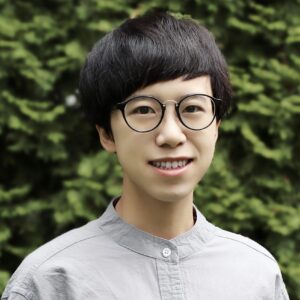UBC experts on AI and machine learning
NeurIPS, one of the leading conferences in machine learning and artificial intelligence research, kicks off in Vancouver this week. UBC experts, including researchers presenting new papers at the conference, are available to comment on related topics.
Dr. Xiaoxiao Li, an assistant professor in the department of electrical and computer engineering, specializes in building trust in AI and advancing its use in healthcare. Dr. Li will present three papers at NeurIPS.
What does responsible AI look like?
Responsible AI is about building AI we can trust—AI that is fair, transparent and helpful. For example, a responsible healthcare app not only explains why it makes a diagnosis or treatment recommendation but also strives to minimize bias to serve diverse populations better, while keeping personal data secure. Ultimately, responsible AI serves humanity ethically, safely and inclusively.

Dr. Xiaoxiao Li
(They/Them/ Theirs)
Assistant Professor, Dept. of Electrical and Computer Engineering
Dr. Cong Lu, a postdoctoral fellow in the department of computer science, focuses on deep reinforcement learning, open-ended learning, and AI for science. Dr. Lu will be presenting two papers at the conference.
What role will AI play in scientific discovery?
Recent advances like ‘The AI Scientist’ have shown progress towards automating the entire scientific pipeline – generating hypotheses, conducting experiments and drafting papers. But what will it take to bridge the gap between this supporting role and groundbreaking contributions that, for now, are in the domain of human scientists?
Dr. Cong Lu
Postdoctoral Fellow, Dept. of Computer Science
Interview languages: English
Dr. Kwang Moo Yi, an assistant professor in the department of computer science, researches 3D computer vision.
What does AI literacy mean to the general public?
AI literacy is as essential as AI’s use and advancement are inevitable, creating a divide between those who use it effectively and those left behind. Knowledge unlocks potential, but equitable solutions ensure everyone benefits, preventing societal gaps as technology reshapes opportunities and capabilities. This answer was also written quickly given keywords via AI, much faster than what I would’ve been able to alone.
Dr. Kwang Moo Yi
(He/Him/His)
Assistant Professor, Dept. of Computer Science
Email: kmyi@cs.ubc.ca
Interview languages: English, Korean
* Available from 10:30 a.m. to 3:30 p.m., except Wednesday Dec. 11 when Dr. Yi is unavailable 11 a.m.- 2 p.m.



